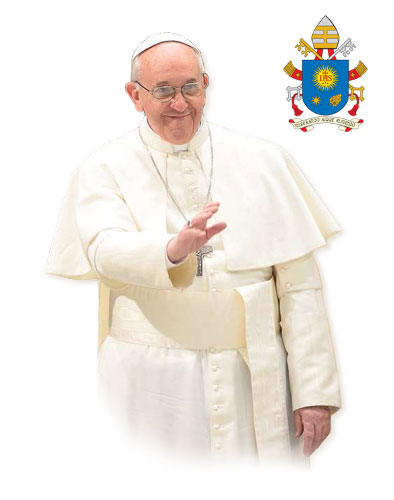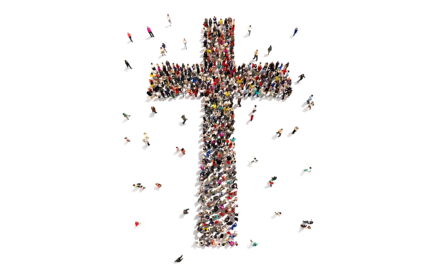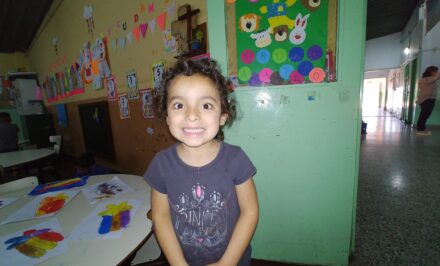 org. Every part of the Church, and many others outside of her – believers or non-believers – have received Pope Francis` clear and hope-filled words. They are also words that motivate us to assume the responsibility we all have to build a world in accordance to the Will of God, in the strength of the Spirit and through the way of Christ. Cardinals and bishops, priests, men and women religious, novices and seminarians, families, the youth and elderly, communities and institutes have received this challenge to go out “onto the street” to take – not a utopian hope – but concrete deeds in living evangelization projects to all men and women wherever they may be. And if they are on the “outskirts” then we have to go there, with all the risks and dangers it may include. He repeats to us constantly: I prefer an injured church, because she goes out to serve, to a Church that is sick because of her self-absorption. Testimony to this can be found in the section of Schoenstatt.org where on a weekly basis texts are selected which motivate us on our own pilgrimage toward the 2014 Jubilee. Undoubtedly, because we are the Church, these words are also directed to us. How happy must our Father not be with this missionary impetus which is given to us from the very heart of the Church! (Fr. José María García)
org. Every part of the Church, and many others outside of her – believers or non-believers – have received Pope Francis` clear and hope-filled words. They are also words that motivate us to assume the responsibility we all have to build a world in accordance to the Will of God, in the strength of the Spirit and through the way of Christ. Cardinals and bishops, priests, men and women religious, novices and seminarians, families, the youth and elderly, communities and institutes have received this challenge to go out “onto the street” to take – not a utopian hope – but concrete deeds in living evangelization projects to all men and women wherever they may be. And if they are on the “outskirts” then we have to go there, with all the risks and dangers it may include. He repeats to us constantly: I prefer an injured church, because she goes out to serve, to a Church that is sick because of her self-absorption. Testimony to this can be found in the section of Schoenstatt.org where on a weekly basis texts are selected which motivate us on our own pilgrimage toward the 2014 Jubilee. Undoubtedly, because we are the Church, these words are also directed to us. How happy must our Father not be with this missionary impetus which is given to us from the very heart of the Church! (Fr. José María García)
![]()
WEEK 16/2014
Each encounter with Jesus changes our life.
Tweet from 16.4.2014
 Jesus reaches complete humiliation with his “death on the cross.” It is the worst death — that reserved for slaves and criminals. Jesus was considered a prophet, but he died as a criminal. Looking at Jesus in his Passion, we see as in a mirror the sufferings of humanity and we find the divine answer to the mystery of evil, of grief and of death. So often we perceive the horror of the evil and pain that surrounds us and we ask: “Why does God allow it?” It is a profound wound for us to see suffering and death, especially that of the innocent! When we see children suffering, it is a wound to the heart: it is the mystery of evil. And Jesus takes upon himself all this evil, all this suffering. It will do us all good this week to look at the crucifix, to kiss Jesus’ wounds, to kiss him on the cross. He took upon himself all human suffering, he clothed himself in this suffering. We expect God, in His omnipotence, to defeat injustice, evil, sin and suffering with a triumphant divine victory. Instead, God shows us a humble victory which humanly seems a failure. We can say that God conquers in failure! In fact, the Son of God appears on the cross as a defeated man: he suffers, is betrayed, is despised and finally dies. However, Jesus allows evil to rage on him and he takes it upon himself to defeat it. His Passion is not an incident; his death – that death – was “written.” Truly, we do not find many explanations. It is a disconcerting mystery, the mystery of God’s great humility: “For God so loved the world that He gave His only Son” (John 3:16).
Jesus reaches complete humiliation with his “death on the cross.” It is the worst death — that reserved for slaves and criminals. Jesus was considered a prophet, but he died as a criminal. Looking at Jesus in his Passion, we see as in a mirror the sufferings of humanity and we find the divine answer to the mystery of evil, of grief and of death. So often we perceive the horror of the evil and pain that surrounds us and we ask: “Why does God allow it?” It is a profound wound for us to see suffering and death, especially that of the innocent! When we see children suffering, it is a wound to the heart: it is the mystery of evil. And Jesus takes upon himself all this evil, all this suffering. It will do us all good this week to look at the crucifix, to kiss Jesus’ wounds, to kiss him on the cross. He took upon himself all human suffering, he clothed himself in this suffering. We expect God, in His omnipotence, to defeat injustice, evil, sin and suffering with a triumphant divine victory. Instead, God shows us a humble victory which humanly seems a failure. We can say that God conquers in failure! In fact, the Son of God appears on the cross as a defeated man: he suffers, is betrayed, is despised and finally dies. However, Jesus allows evil to rage on him and he takes it upon himself to defeat it. His Passion is not an incident; his death – that death – was “written.” Truly, we do not find many explanations. It is a disconcerting mystery, the mystery of God’s great humility: “For God so loved the world that He gave His only Son” (John 3:16).
General Audience, 16.04.2014
The other aspect that I want to share is that of the relationship between study and the spiritual life…This is one of the challenges of our time: transmitting the knowledge and offering a key for vital comprehension, not a heap of notions unconnected to one another. There is need of a true evangelical hermeneutic for better understanding life, the world, humanity, not of a synthesis but of a spiritual atmosphere of research and certainty based on the truths of reason and of faith. Philosophy and theology permit one to acquire the convictions that structure and strengthen the intelligence and illuminate the will … but this is fruitful only if it is done with an open mind and on one’s knees. With an open mind and on one’s knees. The theologian who is satisfied with his complete and conclusive thought is mediocre. The good theologian and philosopher has an open, that is, an incomplete, thought, always open to the maius of God and of the truth, always in development…And the theologian who does not pray and who does not worship God ends up sunk in the most disgusting narcissism. And this is an ecclesiastical illness. The narcissism of theologians, of thinkers, and of the “just” does so much harm.
To professors, students and teaching staff at the Pontifical Gregorian University and to the associated Pontifical Biblical Institute and Pontifical Oriental Institute, 10.04.2014
 The passion and death of Jesus and the frustration of so many human hopes are the real way through which God Works our salvation. A way that does not follow human criteria, and which is more, he tears them down. “By his wounds we have been healed” (cf. 1 Pet 2:24). We think so much of Jesus’ grief this week and we say to ourselves: this is for me. Even if I were the only person in the world, he would have done it. He did it for me. We kiss the crucifix and we say: for me, thank you Jesus, for me. When all seems lost, when there is no longer anyone because they strike “the shepherd and the sheep of the flock will be scattered” (Matthew 26:31), it is then that God intervenes with the power of the Resurrection. Jesus’ Resurrection is not the happy ending of a beautiful fable, it is not the happy end of a film, but it is the intervention of God the Father when human hope is shattered. In the moment in which everything seems to be lost, in the moment of grief in which many persons feel the need to come down from the cross, it is the moment closest to the resurrection. The night becomes darker in fact before the morning begins, before the light begins. God intervenes in the darkest moment and resuscitates.
The passion and death of Jesus and the frustration of so many human hopes are the real way through which God Works our salvation. A way that does not follow human criteria, and which is more, he tears them down. “By his wounds we have been healed” (cf. 1 Pet 2:24). We think so much of Jesus’ grief this week and we say to ourselves: this is for me. Even if I were the only person in the world, he would have done it. He did it for me. We kiss the crucifix and we say: for me, thank you Jesus, for me. When all seems lost, when there is no longer anyone because they strike “the shepherd and the sheep of the flock will be scattered” (Matthew 26:31), it is then that God intervenes with the power of the Resurrection. Jesus’ Resurrection is not the happy ending of a beautiful fable, it is not the happy end of a film, but it is the intervention of God the Father when human hope is shattered. In the moment in which everything seems to be lost, in the moment of grief in which many persons feel the need to come down from the cross, it is the moment closest to the resurrection. The night becomes darker in fact before the morning begins, before the light begins. God intervenes in the darkest moment and resuscitates.
General Audience, 16.04.2014
And in this regard I would like to express my rejection of any kind of educational experimentation with children. We cannot experiment with children and young people. The horrors of the manipulation of education that we experienced in the great genocidal dictatorships of the twentieth century have not disappeared; they have retained a current relevance under various guises and proposals and, with the pretence of modernity, push children and young people to walk on the dictatorial path of “only one form of thought”. A week ago a great teacher said to me… ‘with these education projects I don’t know if we’re sending the kids to school or a re-education camp’…” Working for human rights presupposes the aim of fostering anthropological formation, of being well prepared on the reality of the human person, and knowing how to respond to the problems and challenges posed by contemporary culture and widespread mentality propagated by the mass media. Obviously this does not mean we should cover them with forms of protection that are superseded today because they belong to a past culture…Not this, this is no good…we should propose the positive values of the human person the new culture…For you, this means offering your managers and operators continuing formation on the anthropology of the child, because that is where the rights and obligations have their foundation . It is upon this that the formation of educational projects rest. These projects obviously must progress, mature and accommodate itself to the signs of the times always remember human identity and freedom of conscience…The logo for the commission for the protection of childhood and adolecence in Buenos Aires comes to mind, which Norberto knows very well. The logo of the Holy Family on a donkey fleeing to Egypt, defending this child. Sometimes we have to flee in order to protect. Sometimes we have to stay and protect. Sometimes we have to fight. But it must always be done with tenderness.
To a delegation from the International Catholic Child Bureau (BICE), 11.04.2014
It is not possible to abandon our sin alone. It is not possible. These doctors of the law, these people who taught the law, did not have a clear notion of this. The believed, yes, in God’s forgiveness, but they felt strong,self-reliant, they knew everything. And in the end they had made religión and the worship of God into a culture of their own values, reflections, several commandments on behavior that were to be taught, and yes, they thought that the Lord can forgive, they knew this, but they were too distanced from all that…Christianity is not a philosophical doctrine, it is not a life programme to survive, to be well-formed, to make peace. These are its consequences. Christianity is a person, a person lifted up on the Cross, a person who emptied himself to save us; He took on our sin. And in the same way as sin was lifted up in the desert, here God has been lifted up, made man and became sin for us. And all of our sins were there. We cannot understand Christianity without understanding this deep humiliation by the Son of God, who humbled himself, making himself a servant unto the death and death on a Cross, to serve. This is why the Apostle Paul when he asks what we boast about – we can also speak about what we boast about – our sins. There is nothing else we can boast about, this is our misery. Yet, thanks to God’s mercy, we can boast in the crucified Christ. This is why there can be no Christianity without the Cross and there is no Cross without Jesus Christ. It is not an ornament, which we always put in churches, on the altar. There. It is not a symbol that distinguishes us from others. The Cross is the mystery, the mystery of God’s love, who humbles himself, who makes himself ‘nothing,’ who becomes sin. Where is your sin? ‘I don’t know, I have so many.’ No, your sin is there, on the Cross. Find it there, in the Lord’s wounds, and your sin will be healed, your wounds will be cured, your sin will be forgiven. God’s forgiveness is not like cancelling a debt we have with Him: God’s forgiveness is the wounds of His Son on the Cross, lifted up on the Cross. May He draw us to Himself, and that we allow ourselves to be healed.
Santa Marta, 08.04.2014
Jesus, who chose to pass through this life, calls us to follow him on his same way of humiliation. When in certain moments of life we find some way to come out of our difficulties, when we sink into the thickest darkness, it is the moment of our humiliation and total stripping, the hour in which we experience that we are fragile and sinners. It is in fact then, in that moment, that we must not mask our failure, but open ourselves confidently to hope in God, as Jesus did.
General Audience 16.04.2014
- See all texts in “Francis for the Pilgrims 2014”
- Message for Lent 2014
- Message for World Youth Day 2014
- Evangelium Gaudii
![]()
The aim of the pilgrimage
is the renewal of the covenant of love
as a missionary and unifying creative force,
i.e. internally the renewal of the Schoenstatt Family
and externally the shaping of covenant culture.













